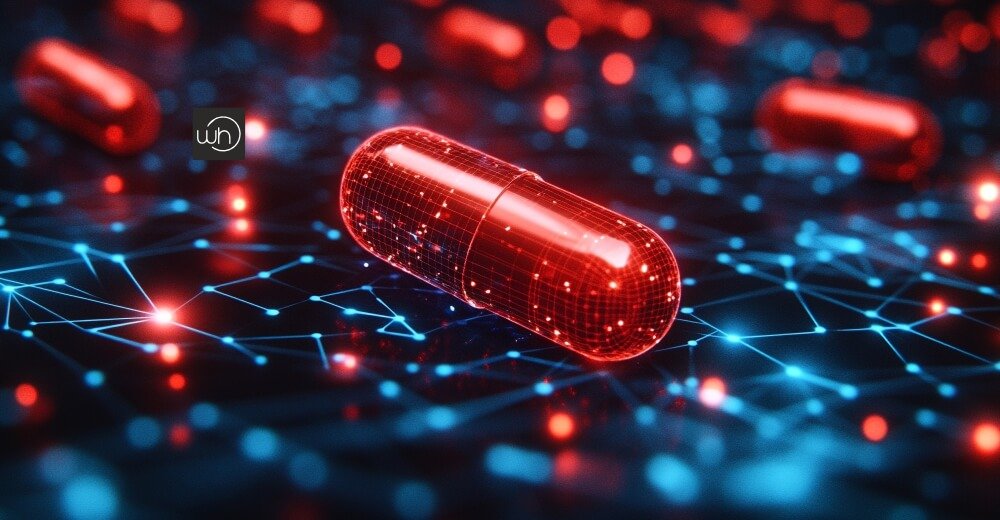Transforming Lives
Over the last several years, the healthcare industry has experienced a revolution in the shape of entwining state-of-the-art technologies. The essence of this revolution is found at the confluence of AI and precision medicine, a very high-potential relationship that is revolutionizing disease diagnosis, treatment, and prevention.
The union of the two promises a future in which treatment not only becomes personalized but also predictive and proactive in nature with the potential to provide better outcomes and lower costs.
Understanding Precision Medicine
Precision medicine is the terminology awarded to tailoring healthcare to the individual patient. Decisions regarding healthcare, treatment, practice, or products are tailored specifically to the patient, as opposed to a one-size-fits-all model. Precision medicine considers genetic, environmental, and lifestyle factors to ensure the most optimal intervention for the individual.
This idea is not new, though its application was previously restricted until the recent breakthroughs in genomics, bioinformatics, and data analysis. Now, with the availability of large sets of biological data, healthcare providers are capable of deciphering multifaceted disease mechanisms and providing therapy that attacks the underlying cause of disease directly and not just the suppression of its symptoms.
The Role of Artificial Intelligence
Artificial Intelligence (AI), and deep learning and machine learning more specifically, has become ubiquitous technology in contemporary medicine. AI can process and analyze enormous amounts of data at rates and levels of precision beyond human means. In medicine, AI is increasingly being used in medical imaging, drug discovery, diagnosis, and robot-assisted procedures.
But its most promising potential lies as a companion to precision medicine. When code written by AIs is used on genomic information, electronic medical records, and direct patient monitoring, they can discover observations and patterns that are not possible to identify in any other way
How AI Complements Precision Medicine
The full potential of AI and precision medicine is only achieved together. AI complements precision medicine in a number of important ways:
- Genomic Analysis
Genomic sequencing generates huge volumes of data that are beyond the ability of conventional data analysis tools to handle. AI steps in to quickly scan the data for the detection of genetic mutations responsible for cancers, Alzheimer’s, and other rare genetic disorders. Clinicians use this data to prescribe treatments with a greater chance of success based on a patient’s genetic profile.
- Predictive Modeling
Artificial Intelligence software can examine patient history and big data to forecast disease risks and outcomes. As an example, AI can diagnose the risk of complication and recommend preventive treatments based on patterns detected in a diabetic patient. This predictive aspect makes healthcare proactive instead of reactive.
- Drug Discovery and Development
It takes years and costs billions of dollars to develop a new drug. AI speeds up the process by making an intelligent guess about what various molecules will do when they come in contact with a particular biological target. Alongside precision medicine, AI enables the generation of drugs that are customized to the genetic makeup of a particular subgroup of patients, leading to greater efficacy and less toxicity.
- Clinical Decision Support
Evidence-based clinical decision-support systems powered by artificial intelligence scan patient data in real-time and provide evidence-based suggestions to healthcare providers. When precision medicine data is added to the mix, the systems can provide patients with tailored treatment plans based on the distinct traits of each patient.
Real-World Applications
AI and precision medicine are not on the horizon anymore—these are already making their impact felt. In cancer treatment, for instance, systems such as IBM Watson for Oncology employ AI to scan through patient data and recommend personalized therapy for cancer based on clinical guidelines and medical literature. In cardiovascular disease, too, AI is applied to identify irregularities in ECGs with genomic risk factors in order to provide more precise diagnoses.
In precision medicine for rare diseases, AI algorithms are assisting in identifying patients who can be potential candidates for gene analysis, speeding up diagnosis times that were once taken in years.
Ethical Questions and Challenges
While its promise is colossal, the integration of precision medicine and AI also presents some very real ethical issues. Sensitive personal health data and genomic data are being gathered and analyzed, which creates concerns about data privacy. Cybersecurity protocols and informed consent processes must be strong.
Also, AI algorithms can be biased if the training population is not representative. This would result in unequal treatment recommendations, further widening health disparities. Continuous monitoring, transparency, and diversity of data collection are crucial to the battle against these problems.
The Road Ahead
AI and precision medicine have a bright future but need intersectoral coordination. Healthcare professionals, data scientists, policymakers, and patients need to come together to create an atmosphere that promotes innovation but respects ethics.
Investments in AI-based digital infrastructure, education of healthcare professionals, and educating the public regarding the usefulness and danger of AI-based healthcare are all good things. Additionally, regulatory frameworks should stay up to date with technology progress such that resultant solutions are not only effective but also safe.
Conclusion
The marriage of AI and precision medicine is not a technological innovation—it’s a human revolution for healthcare. Using data, intelligence, and individuality, this incredible union holds the promise of more precise treatment, better medicines, and better patient outcomes. At the intersection of science and humanity, the health map is being rewritten not only to cure diseases but to see and prevent them in new ways.





